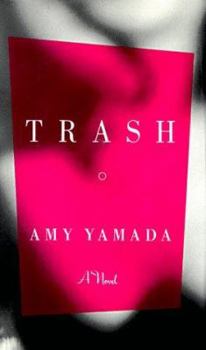Trash
Select Format
Select Condition 
Book Overview
In a racy new interpretation of the traditional Japanese autobiographical novel, Amy Yamada makes her U.S. debut with a view of American urban life. Her frank portrayals of human relationships have... This description may be from another edition of this product.
Format:Hardcover
Language:English
ISBN:1568360185
ISBN13:9781568360188
Release Date:January 1994
Publisher:Kodansha
Length:372 Pages
Weight:1.50 lbs.
Dimensions:1.3" x 5.8" x 9.6"
Customer Reviews
3 ratings
I like this novel
Published by Thriftbooks.com User , 22 years ago
I have read this novel in both Japanese and English, Like someone was mentioned, I think that lots of "beauty of Japanese(language)" has lost in English version. Plus, eventhough love and relationships are common thing in all over the world, there is bit of difference of the way think/feel about Love, I think... Not just the importance of being loved, and to love someone seriously, I saw saddness in Koko and Rick - they had different way to being loved and to love seriously. Koko, who was once a easy-going party animal, now she moved on to real love, Rick, who is so afraid of being loved such a deep level. When there is such difference between two, that brings deep saddnes anyone can resolve...you just have to wait the end of relationship, but this time it's not easy, because you now know what is to really love someone, and your thirst to be loved.Anyway, there is a short novel called "Jessy's backborn"(I don't know if it is translated or not, "Jessy no sebone" in japanese), it is more forcused on Koko and Rick's son Jessy, If you read it, Trash more makes sense and be able to enjoy it more, I think. I have lot to say about Jassy and Koko's relationship, but there is anymore spase to write!!
I love all Amy's books
Published by Thriftbooks.com User , 25 years ago
I love all Amy's books. Trash is one of them. The auther Amy always focuses on Heart and Body on her books.I learned from her books a lot. She is the person who knows what is cool or not in life.I'm sorry people living another countries can't read all Amy's books. And her essay is good,too!!!!
I disagree.
Published by Thriftbooks.com User , 27 years ago
Although some of what Kirkus Review has to say about "Trash" is true -- Koko and the other characters are pretty shallow, and often do what seem to be inexplicable things -- I venture to disagree. I think that Yamada's novel, though not (as you can see from my rating) one of the best that I have ever read, brings up some good points. For example, she talks about people's need TO love as well as to BE loved. This shows in some of the discussions that Koko has with her gay friend Buckey and with Rick's son (I forgot his name), as well as in a lot of the actions of the characters. And if the novel doesn't actually assert a certain point of view (is that Yamada's Japanese side coming out?) I think it brings up quite a number of things to think about. And maybe we Americans just aren't subtle enough to pick up some of the things that would be plain as day to a Japanese reader. Another thing to consider is the tendency of Japanese literature to not "go" ANYWHERE. It's often not about "going," but more about the way the language sounds, and what goes on inside the characters -- and a lot of that I know (from experience) is lost in translation.I wonder if maybe, too, the author of the Kirkus review ever knew people who just couldn't get themselves away from people that are destroying them? In any case, I don't think that this book is as bad as the Kirkus Review thought it was ... and I'd recommend it, though perhaps behind other Japanese novels (Abe Kobo's "Secret Rendezvous" for one)






